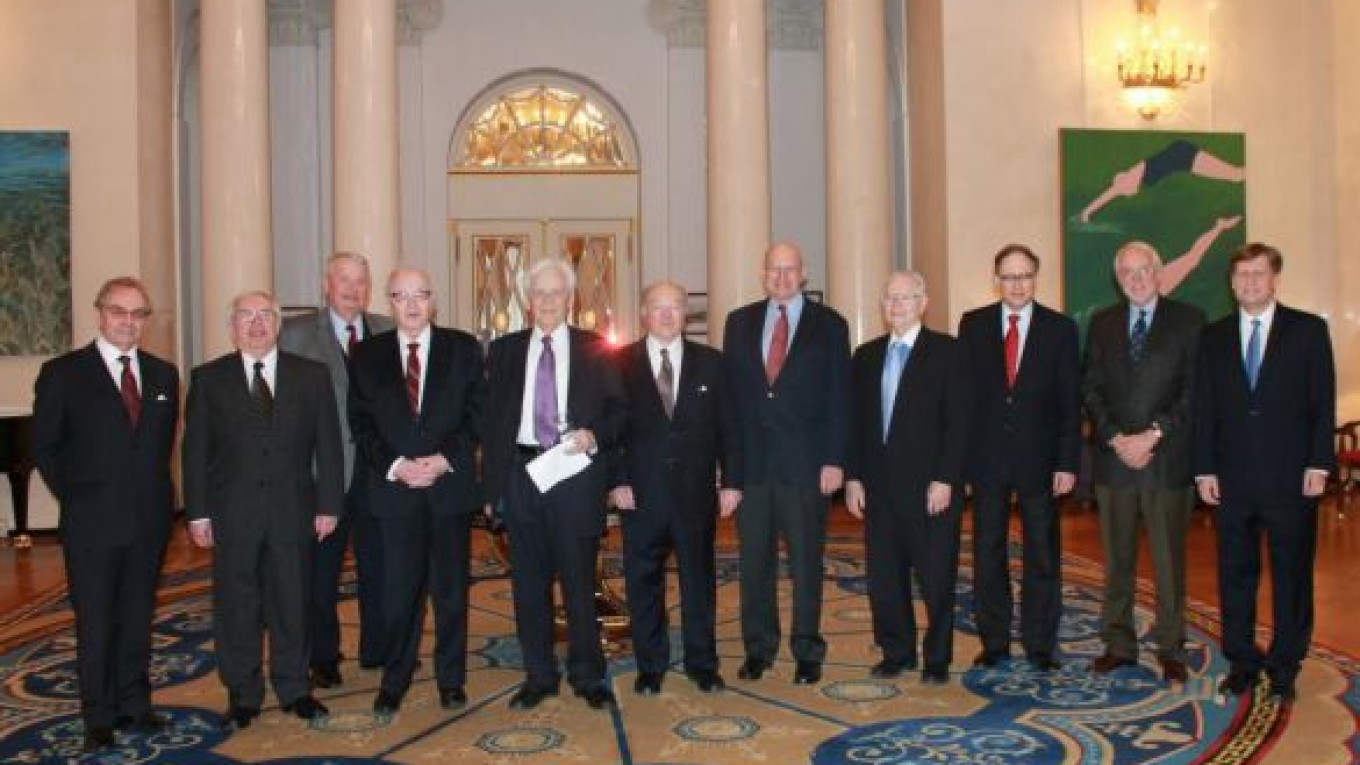The way the United States and Russia view each other has changed fundamentally in recent years, a difference reflected in the words of several former ambassadors who gathered to discuss how the two countries can address the diplomatic challenges of today.
While the Russians continued to speak of the two countries as superpowers, the former U.S. ambassadors referred to a changing world in which Russia is no longer that important for Americans and in which both countries are struggling to adapt to shifts in global economic and political power.
The global shifts are "challenging Moscow and Washington in very profound ways, but, most significant, challenging them to think about how they work in a world in which they are no longer the only leaders that matter," said James Collins, the U.S. envoy to Moscow from 1997 to 2001, who heads the Russia program at the Carnegie Endowment for International Peace, in Washington.
He was addressing eight other former ambassadors meeting Sunday in Moscow to commemorate 80 years since the United States recognized the Soviet Union in 1933, restoring relations that were broken off after the 1917 Bolshevik Revolution.
? U.S.-Russian relations have been strained in recent months by a new U.S. law imposing sanctions on Russians accused of involvement in the death of whistleblower Sergei Magnitsky and other human rights violations. Russia responded by banning adoptions by U.S. citizens.
Jack Matlock — who spent many years in Moscow during a long diplomatic career, including as ambassador from 1987 to 1991 — said that while Russians have strong emotional reactions to steps taken by the U.S. government, most Americans are no longer much interested in Russia. What little interest they have in foreign affairs is focused mainly on the Middle East and China, he said.
"But, you know, in these areas, I think, as an American, either Russia is going to be part of the solution or part of the problem," Matlock, 83, said in an interview before the meeting, which beyond introductory remarks was held behind closed doors. "And it should be our diplomacy to help them be part of the solution."
Matlock chided Congress for passing the Magnitsky Act. "I do object when our Congress that can't pass a budget, that has put our national credibility as a borrower under question, is passing laws that have to do with other countries. I think they should be concentrating more on taking care of our business. But I do think the reactions have been often emotional and not in the interest of either country."
Yury Dubinin, the Soviet ambassador to Washington from 1986 to 1990, said the former ambassadors would discuss how Russia and the United States could work together to have a positive influence on global affairs.
"Despite all the twists and turns of the past decades, Russia and the U.S. were and remain great diplomatic powers," Dubinin said in an interview. "That's how they were regarded and how they are regarded now in the world."
Related articles:
A Message from The Moscow Times:
Dear readers,
We are facing unprecedented challenges. Russia's Prosecutor General's Office has designated The Moscow Times as an "undesirable" organization, criminalizing our work and putting our staff at risk of prosecution. This follows our earlier unjust labeling as a "foreign agent."
These actions are direct attempts to silence independent journalism in Russia. The authorities claim our work "discredits the decisions of the Russian leadership." We see things differently: we strive to provide accurate, unbiased reporting on Russia.
We, the journalists of The Moscow Times, refuse to be silenced. But to continue our work, we need your help.
Your support, no matter how small, makes a world of difference. If you can, please support us monthly starting from just $2. It's quick to set up, and every contribution makes a significant impact.
By supporting The Moscow Times, you're defending open, independent journalism in the face of repression. Thank you for standing with us.
Remind me later.


